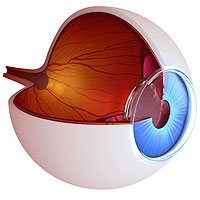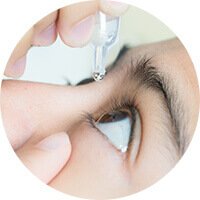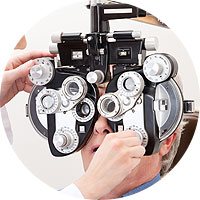
The reasons to get LASIK are endless. Whether you’re getting it to experience the peace of mind it brings from not having to worry about your contacts, or you’re looking forward to the freedom you’ll have to do the things you can’t do with glasses on, or any combination of the vast amount of benefits that you’ll receive after getting the surgery, it’s pretty obvious as to why so many people choose LASIK every year. If you are interested in learning how to start the process, scheduling a consultation with one of our clinics in Scranton or Kingston, PA is the best place to start!
Just like every surgery, though, it has a recovery time. A period after the surgery in which you will experience some discomfort and will have to be much careful with your day to day activities. Luckily, LASIK recovery time is incredibly easy. You will experience a minimum amount of pain, and you will still be able to do most of the things you normally do. Here are some ways to maximize your recovery time and make sure you don’t run into any problems.
The First Weeks of Recovery
The first week is the most challenging, but still quite easy compared to other eye surgery recoveries. This is when your eyes are in their most fragile state. You may feel a slight burning or itching for a few days, though it could extend to a couple weeks in some people. You should use the eye drops you’re given even when you’re eyes don’t feel dry.
The most important thing to avoid is rubbing your eyes during this time. During LASIK, a flap is made in your cornea. When the surgery is finished, the flap is left to heal on its own; no stitches are used. Your eye is remarkably good at healing small injuries, such as the corneal incision, but it still runs a high risk of being damaged. Wear any protective eyewear as recommended, especially while you sleep to ensure that you don’t roll over and inadvertently damage your eye.
You should also avoid things that will put your eyes at a higher risk of being compromised. Things like contact sports may be obvious to avoid during this time, but you will also need to avoid swimming, wearing makeup, and opening your eyes in the shower. These all increase the risk of getting an infection from outside bacteria. You will also need to avoid exercise for a while, as even too much physical stress can damage the eye.
The Following Months
It takes a patient anywhere from three to six months to fully recover from LASIK depending on what their prescription was like. As time goes on, you will be able to do more and more of your daily routine as your eyes heal. Before you know it, you will be fully recovered!
It is very important to go to any and all follow-up appointments that you and your doctor schedule. Typically, there will be one within 48 hours of the surgery, but you may also need more throughout the following months. These are so that your doctor can monitor your progress and catch any problems early on.

















